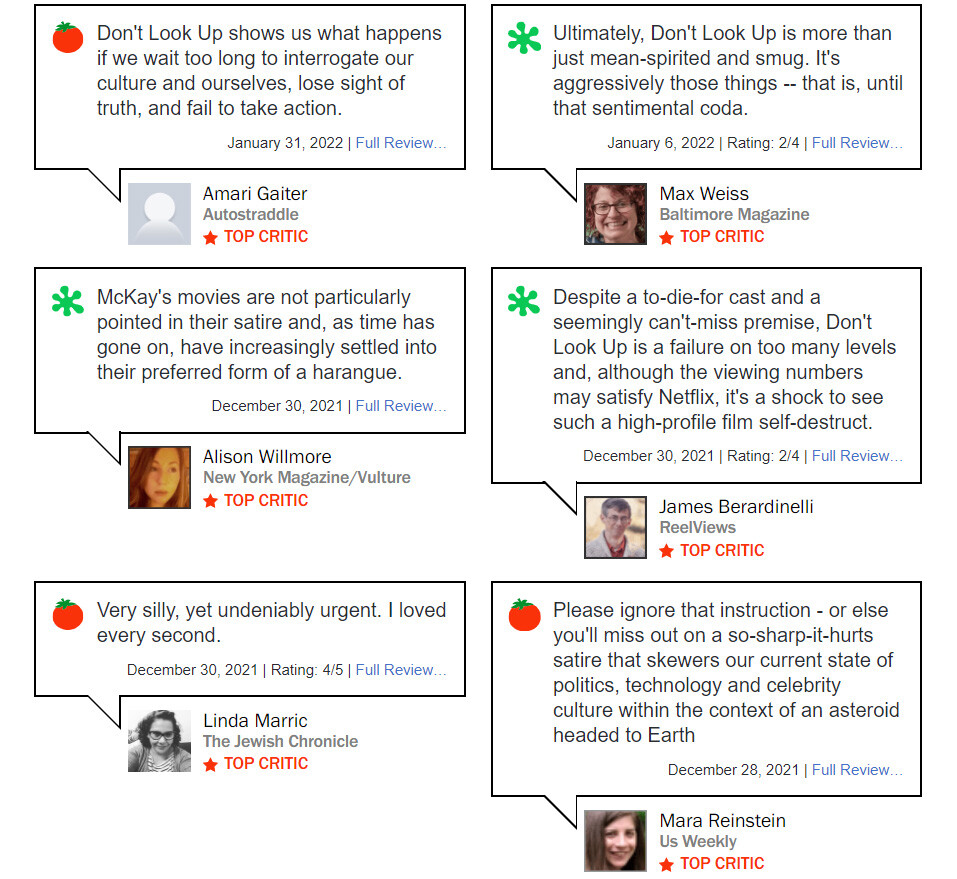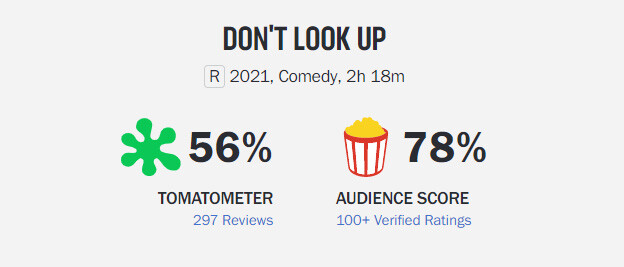Oh, and here’s an image to go with that first paragraph because while the movie made record viewing numbers on Netflix, it totally bombed with critics:
Here, too, are the actual words from the folks who thought Adam McKay’s satire was too mean somehow:

The movie was certainly divisive, with some praising the “sharp satire” and others saying it was dumb or mean or whatever they felt at the time when the pandemic was still in full swing and everyone was depressed because of Christmas. It was, in many ways, the opposite reaction to the satire in Star Troopers because while people felt that Verhoeven’s space bugs movie played too straight, it seemed that Don’t Look Up was too on-the-nose. Which was totally the point, but hey, expectations and preferences will always cloud perspective.
For writer and director Adam McKay, the idea of doing a movie that satirized people’s attitudes toward the threat and impact of climate change came easy: “We (McKay and co-writer David Sirota) were commiserating about the lack of coverage of the climate crisis, and he said, ‘Oh yeah, it’s like an asteroid is going to hit earth and no one cares,’ and I was like, ‘That’s it!’”
McKay isn’t mad that folks were pushing back on the movie that shows the government, the media, and the general public being brazenly blasé about such an obvious threat to life on our planet. “I actually love the controversy; I actually love the debate. I think critics and I think film fans should be challenging this movie, and we should be asking questions about how we tell stories. During the seismic times that we’re living through, these are times like no other. I’m 53 years old, and I’ve never seen times like these, so the passion that I saw and the anger from some viewers of the movie have been incredible.”
Maybe folks were angry because they didn’t get another Step Brothers movie. Maybe it’s because the science community came out to embrace the film. Or maybe it’s because the movie is, perhaps, too close to the truth for some to handle:

